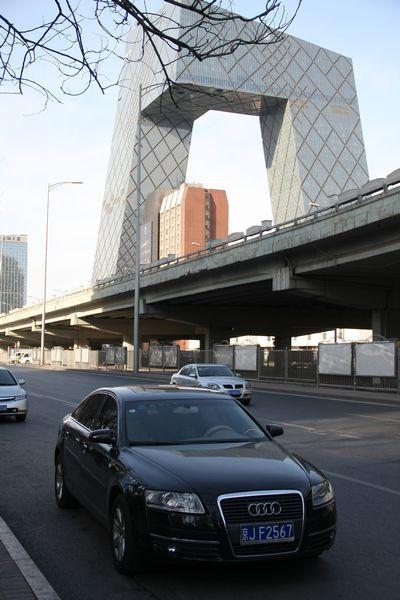Drivers face illegal parking crackdown
- Source: Global Times
- [09:13 March 23 2011]
- Comments

A car sits on the East Third Ring Road Tuesday. Photo: Wang Zi
By Yang Jie
Car owners in Chaoyang district who park in undesignated spaces alongside roads will be fined, have their cars towed or both beginning April 1 in a move by traffic authorities to curb rampant illegal parking in the area.
"Traffic police officers are mainly issuing warnings before the policy takes effect," Su Chaowei, a publicity officer from the Chaoyang traffic commission, told the Global Times Tuesday.
The campaign, focusing on the Central Business District (CBD), will extend to greater Chaoyang in a bid to prevent illegal parking and crack down on unlicensed parking lots before the end of October.
Beijing suffers from greater traffic congestion than cities such as Tokyo, New York and London due to the sheer number of vehicles on the road and unruly illegal parking, said Mei Shishu, secretary of Chaoyang traffic commission.
Many downtown streets have no designated parking spaces and are often crammed with parallel-parked cars, which occupy pedestrian, bicycle and emergency vehicle lanes.
A total of 120 groups of automatic surveillance cameras will be installed along the East Third Ring Road, Chang'an Avenue and in the CBD area. Cars illegally parked will be recorded and the data transmitted for archiving.
According to the commission, parking at subway station exits on the East Third Ring Road for an extended period of time will also be documented and fined, even if the driver remains inside with the car idling.
Traffic authorities, in collaboration with several other related departments, will also crack down on illegal parking lots. Citizens can report such lots by calling the commission's hotline, 67301616.
"I applaud the government's approach," said Tu Rui, a car owner who lives near the CBD, "I believe traffic around the CBD would greatly improve if authorities can really stick to what they've set out to do."
Tu said many reluctantly ride bicycles in vehicle lanes, which is dangerous for both cyclists and drivers, adding that authorities should also create more parking spaces to meet the high demand.
Sub-district offices are using different means to alleviate the parking crunch, such as borrowing spaces from nearby organizations, establishing temporary parking lots on unoccupied land or building multi-level parking garages, according to the commission.





